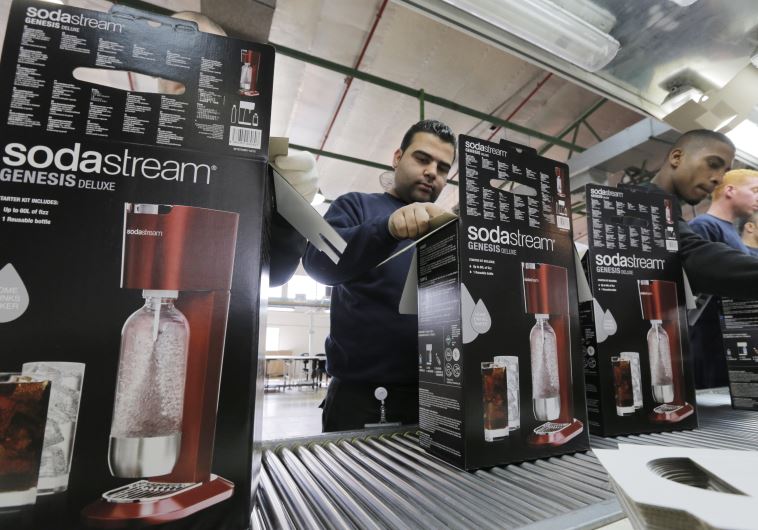SodaStream CEO slams government 'disregard for human dignity' over Palestinian work permits
Birnbaum says government decision to let dozens of work permits expire sends children to hunger, gives ammunition to BDS.
 Employees pack boxes of the SodaStream product at the factory in Maaleh AdumimUpdated:
Employees pack boxes of the SodaStream product at the factory in Maaleh AdumimUpdated: